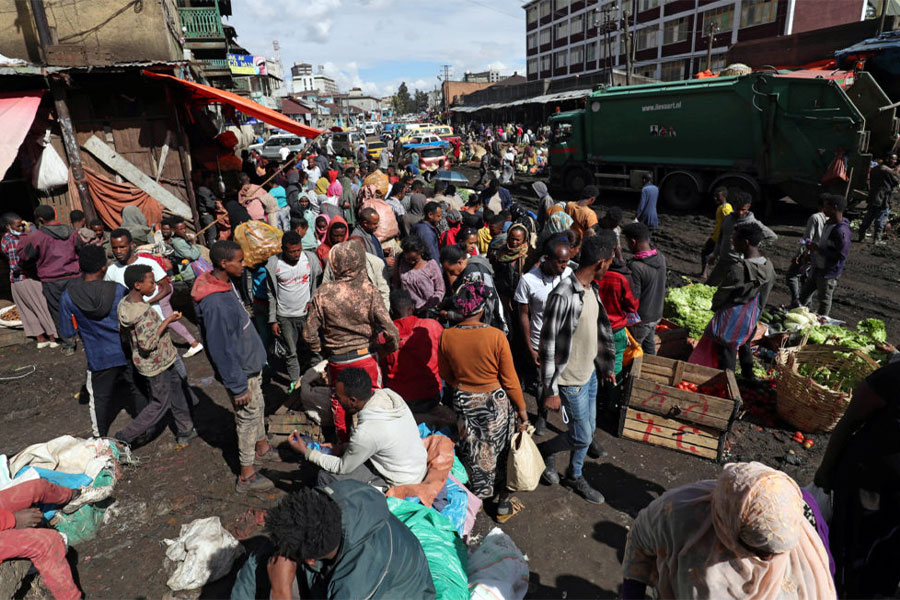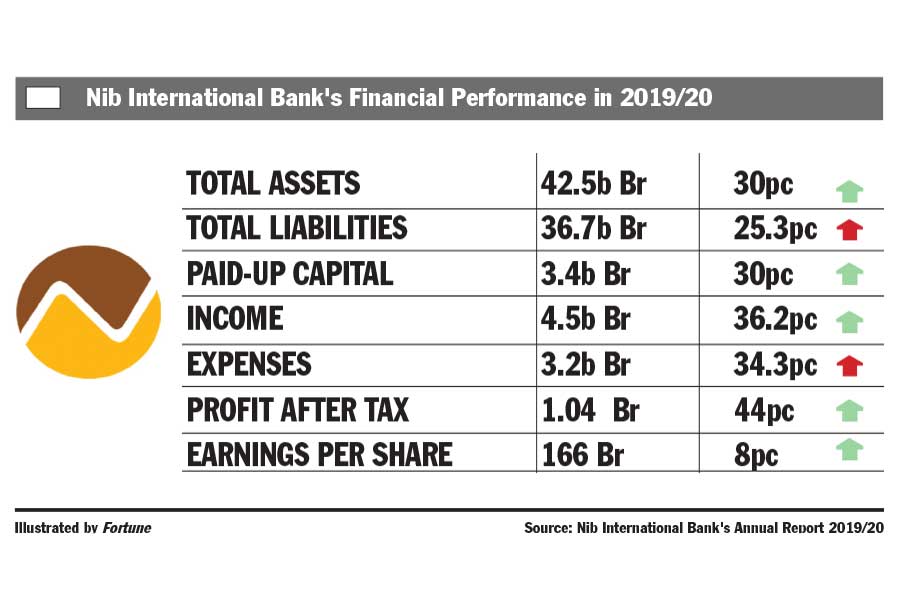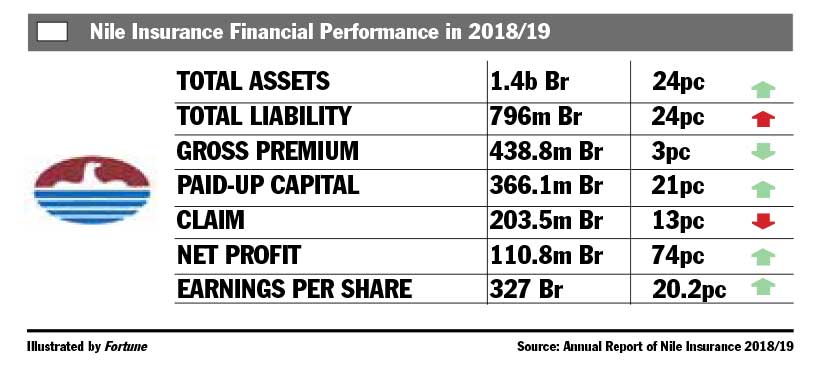
Viewpoints | Apr 15,2023
Sep 14 , 2024
By Geremew Milkias
After years of a state-led model, policymakers' decision to open up the economy could begin attracting various players across different sectors. The policy shift, which follows in the footsteps of many of Ethiopia's neighbours that opened their economies earlier, is expected to bring with it valuable operational experience from international markets. One of the most visible examples of the benefits of this economic policy liberalisation has been the transformation of Ethio telecom, the largest state-owned company, which has restructured its operations to become more innovative and efficient.
Whether other sectors will follow Ethio telecom’s lead is a question that lingers across the economy.
The financial sector, which has long been protected from foreign competition, has remained profitable under a closed system. Yet, its operational efficiency and capacity for innovation remain untested as the market prepares for the arrival of international and regional competitors.
The banking industry, in particular, faces a difficult time ahead as its executives wrestle with the recent liberalisation of the exchange regime. The Birr has depreciated more than 100pc over the past few weeks as policymakers moved to float the foreign currency market. The sharp decline in value has effectively halved the banks' capital when measured in foreign currency. Some analysts have called for the merger of smaller banks in response, arguing that consolidation would create larger, more competitive financial institutions capable of meeting international standards.
Nigeria’s banking sector's experience should offer a possible roadmap. Over the years, the West African country reduced the number of its banks from 87 to fewer than 25, with eight now recognised as meeting international standards.
Beyond the financial sector, the export sector has struggled to keep pace with its ballooning imports, a dynamic that threatens the long-term sustainability of the economy. In 2023, exports were valued at 6.2 billion dollars, according to Afri ExIm Bank, while imports reached 13.6 billion dollars, resulting in a trade deficit of 7.4 billion dollars. This imbalance is particularly pronounced when viewed through the lens of intra-African trade, where Ethiopia’s trade volume with other African countries was only 1.7 billion dollars, 9.1pc of its total trade. According to the Afri ExIM Bank, it was well below the regional average of 18.6pc.
The foreign currency reserves have also taken a hit, declining to an estimated 727 million dollars in 2023 from a high of a little over three billion dollars four years ago. This dramatic drop in reserves has added pressure on businesses, particularly those dependent on imported goods and services, to find new ways to survive the international marketplace.
Due to the ongoing liberalisation, companies well-prepared to enter international markets could thrive. However, a lack of experience dealing with foreign competition and managing complex transactions could hinder their progress. One area of concern should be the financial sector’s limited experience conducting forward transactions and other forms of risk management that are commonplace in more liberalised markets. While coffee exporters have some experience with futures contracts, many different sectors lack the expertise needed to engage in such deals, which could leave them vulnerable to speculative attacks and market volatility.
Manufacturing, too, faces a structural crisis, with inefficiencies and bottlenecks inhibiting the sector’s ability to improve export performance. The country has made notable strides in increasing its power capacity, which is crucial for the manufacturing sector’s growth. But, without further reforms and improvements in infrastructure, exports may struggle to compete on the global stage.
Despite these challenges, there are signs of progress, particularly in efforts to develop the private sector.
The private sector’s ability to create and maintain market linkages will also play a crucial role in the economic future. While several promising initiatives have been designed at improving market access, these efforts should be supported by businesses with established networks in some of the world’s largest economies. Agricultural products, for instance, have potential buyers in markets such as Europe, the Middle East, and Asia, but without better market linkages, these opportunities will remain largely untapped.
The African Development Bank (AfDB) recently committed 43.8 million dollars to support young entrepreneurs and small and medium-sized enterprises (SMEs) in Ethiopia, focusing on the agricultural sector. These initiatives are essential for encouraging private sector growth and creating a more diversified economy.
However, private sector development alone will not be enough. Businesses need to adopt a more international outlook to compete in the global economy. The "think global, act local" approach, which encourages firms to leverage international opportunities while maintaining a solid domestic presence, could be a starting point. Partnerships with trade centres and commercial chambers in target markets could help companies tap into global demand and improve the country's overall trade performance.
One area that needs particular attention is networking.
Ethiopian businesses, especially those aiming to expand into regional and global markets, should improve their ability to form connections and partnerships. The gap in networking skills has been a factor holding back intra-African trade, as businesses miss out on opportunities to capitalise on the connections that can be made through business travel and international forums.
PUBLISHED ON
Sep 14,2024 [ VOL
25 , NO
1272]


Viewpoints | Apr 15,2023

Radar | Jun 01,2024

Commentaries | Oct 18,2025

Fortune News | Feb 25,2023

Fortune News | Jan 23,2021

Commentaries | Feb 24,2024

Fortune News | Feb 08,2020

Fortune News | Jul 27,2025

Radar | Aug 03,2025

Fortune News | Dec 21,2019

Photo Gallery | 180621 Views | May 06,2019

Photo Gallery | 170815 Views | Apr 26,2019

Photo Gallery | 161899 Views | Oct 06,2021

My Opinion | 137301 Views | Aug 14,2021

Dec 22 , 2024 . By TIZITA SHEWAFERAW
Charged with transforming colossal state-owned enterprises into modern and competitiv...

Aug 18 , 2024 . By AKSAH ITALO
Although predictable Yonas Zerihun's job in the ride-hailing service is not immune to...

Jul 28 , 2024 . By TIZITA SHEWAFERAW
Unhabitual, perhaps too many, Samuel Gebreyohannes, 38, used to occasionally enjoy a couple of beers at breakfast. However, he recently swit...

Jul 13 , 2024 . By AKSAH ITALO
Investors who rely on tractors, trucks, and field vehicles for commuting, transporting commodities, and f...

Nov 1 , 2025
The National Bank of Ethiopia (NBE) issued a statement two weeks ago that appeared to...

Oct 25 , 2025
The regulatory machinery is on overdrive. In only two years, no fewer than 35 new pro...

Oct 18 , 2025
The political establishment, notably the ruling party and its top brass, has become p...

Oct 11 , 2025
Ladislas Farago, a roving Associated Press (AP) correspondent, arrived in Ethiopia in...

Nov 2 , 2025
The National Bank of Ethiopia (NBE) has scrapped the credit-growth ceiling that had s...

Nov 2 , 2025 . By SURAFEL MULUGETA
The burgeoning data mining industry is struggling with mounting concerns following th...

Nov 2 , 2025 . By YITBAREK GETACHEW
Berhan Bank has chosen a different route in its pursuit of a new headquarters, opting for a transitional building instea...

Nov 2 , 2025 . By BEZAWIT HULUAGER
Nib International Bank S.C. has found itself at the epicentre of a severe governance...